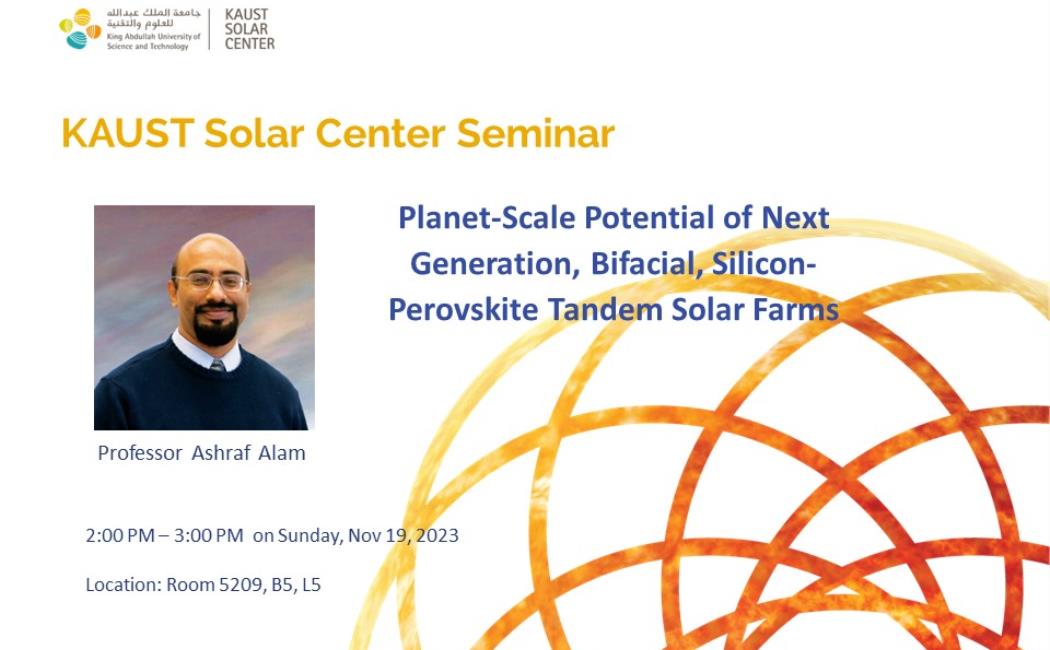
Abstract: Photovoltaic technology has emerged as a viable renewable energy source and new solar farms are being constructed all over the world. Unfortunately, the underlying cell technology (e.g., single junction Si solar cells) is 50 years old and rapidly approaching its efficiency limit. Further improvement in PV efficiency is possible through multi-junction solar cells, and recent breakthroughs in the performance and reliability of perovskite-Si tandem cells promise a new generation of solar farms based on tandem cell technology.
In this talk, I will use thermodynamic arguments, and device/module physics, coupled with farm topologies to explain the opportunities and challenges of planet-scale deployment of Si-PVK tandem farms. I will explain how a fundamental rethinking of test and qualification methodologies is needed to experimentally validate the planet-wide potential of tandem solar cell technology.
About the speaker: Professor Alam is the Jai N. Gupta Distinguished Professor at Purdue University, where his research focuses on the physics and technology of semiconductor devices. From 1995 to 2003, he was with Bell Laboratories, Murray Hill, NJ, as a Member of Technical Staff in the Silicon ULSI Research Department. Since joining Purdue in 2004, Dr. Alam has published over 300 papers and he is among the top 20 contributors on diverse topics involving transistors, reliability, biosensors, and solar cells. He is a fellow of IEEE, APS, and AAAS. His awards include the 2006 IEEE Kiyo Tomiyasu Field Medal for contributions to device technology, the 2015 SRC Technical Excellence Award for fundamental contributions to reliability physics, and the 2018 IEEE EDS Award for educating, inspiring, and mentoring students and electron device professionals around the world. More than 500,000 students worldwide have learned some aspects of semiconductor devices from his web-enabled courses.